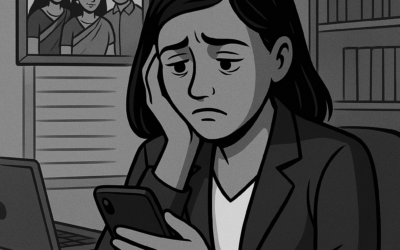If you have a few strands of grey hair on your head, then you may not like a wild idea coming your way. Or perhaps a new solution to the old problem, definitely not the old solution to the old problem. This has little to do with the idea or the solution. It is what I call the consequence of accumulated experience. Something the experienced person goes through without their knowledge. The tale of the 21st century so goes that a young lad, with blood racing in his veins to create something for himself, to make a difference in the world, conceives a brilliant idea. He believes it is one in a million, his true brainchild. He has the enthusiasm to realize it.
He does the most logical thing that any young person with no money, yet an infectious passion, does. He approaches a serial investor, a giant in the industry, the one who has seen the rise and fall of businesses under his wing; to pitch his startup idea. The idea is one of a kind, out and far away from the box. It makes the youngster glow as he talks about it. He ends his pitch with absolute euphoria and eagerly waits for a response, dreaming of a fat pay check. The tycoon poised all this while listening to the idea, his fingers crossed, with not much of an expression, dismisses it quite normally. “This is not going to work”, he says. He has seen many ideas like these and they’ve all failed, and this too shall. He is sorry and wishes the young man luck. The young man leaves the room dejected.
Of course, this is an exaggerated portrayal. However, the tale is quite common. A simplified depiction of this would be in our everyday work lives as people with lesser professional experience deal with people who are much more experienced. Most bosses believe they can do a task better than their subordinates, and probably most of them are right about it. This, in reality, cannot be tested.
If we divide our working lifespan into four parts, we can say, we would be better in the second part than we were in the first, and subsequently better in the third part than we were in the second and a lot better in the fourth. If we plot working lifespan against experience in terms of knowledge gained in our area of work, it will more or less be an S curve. We move from young and inexperienced to old and experienced. This knowledgeable experience I talk about, is what helps managers take a decision. When a problem appears, these managers are able to draw from their accumulated well of experience and decide to do the right thing or dismiss options that may not work. It is a kind of a feeling, in a sense, because the external conditions of the past and present are never the same.

The term experience can also be broadened to include activities of everyday life like travelling, food habits, relationships etc. We know what we’re good at and what we’re not, through these experiences. And once again, this is not restricted to skills or tasks. Consider even the way of living. We know whether we can stay awake late until night and still wake up early the next day only from our experience of doing it. We know for how long we can live without food. We know what clothes we like to wear. We also know what kind of people we like to surround ourselves with. All this knowledge comes from experiences and helps one to make better choices. We also hugely build from the experiences of our previous generations. Human beings have evolved this way. We save money because we have been told about the generation who experienced market crashes though we may not have faced it personally. We know war is bad, independence is good and so on!
Stereotypes are also nothing but experiences passed generation after generation.
So, where does the experienced individual stand on optimism? Well, optimism not just towards new ideas or innovations but rather, let us look specifically towards an old idea which did not work in the past; an old solution but not a bad solution. An experienced individual’s optimism is rightfully skewed towards ideas, solutions and ways of life that lead to desired results. The solution in hand may not be an optimal one but as long as it is producing the intended result, the mind tends to choose this, rationalizing it all the way by the accumulated experience of the individual. Because of this rationale, the experienced person may not be aware of the possibilities of old ideas. He may continue to dismiss the mundane and obvious solutions to problems, put forward by his subordinates citing experiences of the past. He may continue to advise his kids never to take risks because they’re not worth it. And most often he may be right as well. We may never really know.
It is this strong expertise in matters coupled with confirmation bias, which makes experienced individuals judge new situations quickly by referencing it to the situations from the past.
The optimism or rather the energy to consider a solution which already proved bad is completely against the individual’s own morale. This poses a dilemma to the inexperienced or perhaps a challenge of sorts. Thus the statement, ‘Those who do not learn history are doomed to repeat it’.

Experience Vs Optimism 
The intersection of Experience and Optimism
Putting Together My Humble Hypothesis!
An individual’s optimism is quite inversely related to the experience of the individual, an inverted S, more or less. Over one’s lifespan, one will gain experience and lose optimism. Now, there is a point of intersection, so to speak, which perhaps is what is called the midlife crisis for most of us.






0 Comments